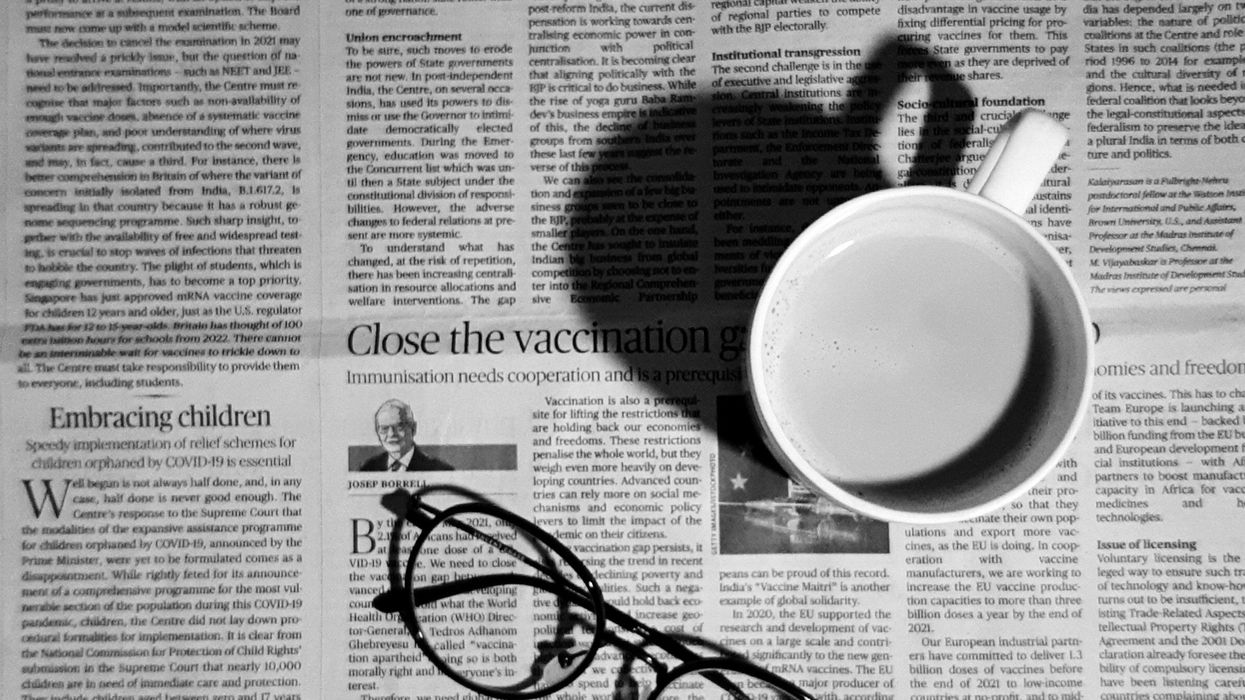The United States is living through a moment of profound democratic vulnerability. I believe the Trump administration has worked in ways that weaken trust in our institutions, including one of democracy’s most essential pillars: a free and independent press. In my view, these are not abstract risks but deliberate attempts to discredit truth-telling. That is why, now more than ever, I think journalists must recommit themselves to their core duty of telling the truth, holding power to account, and giving voice to the people.
As journalists, I believe we do not exist to serve those in office. Our loyalty should be to the public, to the people who trust us with their stories, not to officials who often seek to mold the press to favor their agenda. To me, abandoning that principle would be to betray not just our profession but democracy itself.
I chose this career because I believe in journalism’s potential to humanize, to dignify, and to connect. Coming from a Mexican household, I know firsthand the resilience and hard work of Latino families. Yet far too often, our communities are misrepresented, or worse, erased from the mainstream narrative. Like many other journalists of color my duty to tell stories truthfully is not just professional; it is personal.
I am not alone in this belief. My colleagues at USC Annenberg School for Communication and Journalism share similar views. As graduate students training for the same profession, we often reflect on what journalism means at this moment. Karla Cruz told me, “I think that the role of journalism in a government that's so polarizing that we live in now is just to keep telling like the truths, like different truths that people might not be, that might not be uncovered to certain types of people in different demographics. Like it's extremely important to tell all the stories, and not just the ones that the government wants to focus on or the ones that the government might want to misconstrue…I think we need to just continue and give it our all to make sure that it stays the art that it is, because it's really, it's like, we have to make sure that it's not a dying art, that it just continues and gets better.”
At the same time, I recognize that trust in the press is fragile. A 2024 Pew Research Center study found that over half of U.S. adults say they at least sometimes get news from social media, where misinformation and disinformation often spread faster than the truth. I think this makes our work even more urgent. Newsrooms have tried to meet audiences where they are by expanding their digital presence, but the online world is crowded with people who are not trained in ethical code or journalism and proper fact checking procedures. This makes it harder for the public to distinguish who to trust.
Constanza Montemayor, another of my graduate journalism colleagues at USC Annenberg, emphasized the importance of maintaining trust. “It's so important to know what facts are true and what commonalities people can share in voting….And journalism is an essential part of that; it is providing a place for that analysis of policy or politicians…I think it's just so important to have that line of communication and transparency that journalism provides between the government and its constituents…journalists can serve as a really important kind of third party, witness, and independent observer to protect the public's interests.”
That is why I believe we must double down on accuracy, transparency, and fairness. I think we must remind our audiences, not just through words but through our actions, that journalism is for them. Their struggles, fears, and hopes matter, and we have a responsibility to highlight their realities with respect.
Karla also reminded me of another important dimension: “I think just being able to uplift different voices and show, don't tell that's one of the things that really stuck with me when I first started getting into journalism…and I think that's just extremely important in a democracy, being able to have freedom of speech, which has unfortunately been threatened. But I think again, we've got to continue on with it.”
In many cases, the absence of a strong press leaves communities less informed and less able to hold leaders accountable. I believe the United States is not immune to these challenges. These are uncertain times for our democracy, and I believe the press has a crucial responsibility not to retreat from its role.
Constanza put it best: “Journalism can save lives. It can change governments, and it keeps our democracy in check from falling into more tyrannical power structures. It helps keep one person from having absolute power or being absolutely unquestioned. It helps give the people a voice in government. Also, people don't have time in their daily lives to go out and question their politicians all the time. So journalists do it for them”
I think this is a time for journalist to return to the basics of our profession: verifying facts, protecting sources, amplifying truth, and holding leaders accountable. In my view, these practices are how we begin to rebuild trust and strengthen our democracy.
Lluvia Chavez, a Mexican-American bilingual journalist dedicated to amplifying the stories of underrepresented communities, and a cohort member with the Fulcrum Fellowship




















